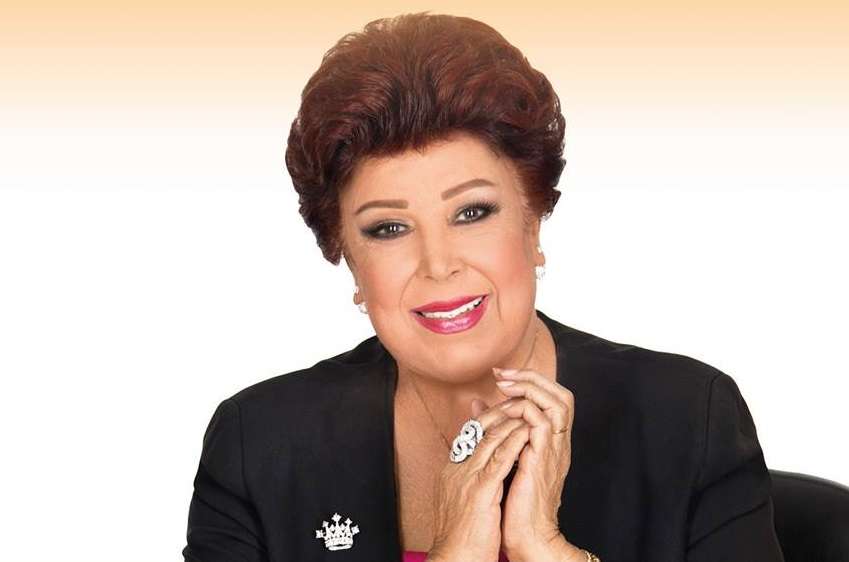Veteran Egyptian actress Ragaa El-Gedawy, whose career has spanned for over six decades, is currently receiving treatment for Coronavirus at the Abu Khalifa Isolation Hospital in Ismailia.
On Tuesday, a medical source at the Abu Khalifa Isolation Hospital revealed that the 81-year-old actress has been transferred into the intensive care unit (ICU) at dawn, after the deterioration of her health condition.
The source added that El-Gedawy was transferred immediately to the ICU after she felt shortness of breath, headache, and circulatory collapse in the early hours of the morning.
The truth about Ragaa El-Gedawy's Death
Rumors have been circulating on social media within the past couple of hours, claiming that the 81-year-old actress has passed away.
Amira Mokhtar, the daughter of El-Gedawy, took to Facebook to deny the circulating rumors about her mother’s death, for the second time.
"It is true that my mother is ICU, but she did not lose consciousness. I am saying this for the second time to pray for her recovery, hers, and every patient." Mokhtar wrote on Facebook.

Moreover, an official source at Abu Khalifa Isolation Hospital affirmed that the veteran actress is in a stable condition.
The source revealed that El-Gedawy was moved from her room to a level 2 ICU and placed on a respirator.
"She is responding well to treatment," the source added.
The source denied the fakes news that claims that her heart muscle had stopped, stressing that her heartbeat is regular and her general condition is stable.
The source also addressed the reports that call for her transfer to a hospital in Cairo, saying: "The actress and her daughter desires to complete her treatment there."
[caption id="attachment_129949" align="aligncenter" width="849"] Ragaa El Gedawy[/caption]
Ragaa El Gedawy[/caption]
It is worth mentioning that the novel coronavirus was first reported in Wuhan, China, and has infected more than one million people and killed over 234,139 worldwide. It also hit several celebrities and top political figures around the world.
The virus is a new member of the Coronaviruses group, which was never identified in humans. The viruses’ family also includes Middle East Respiratory Syndrome (MERS-CoV) and Severe Acute Respiratory Syndrome (SARS-CoV), which cause illness ranging from the common cold to more severe diseases.
Coronaviruses are zoonotic, meaning they are transmitted between animals and people. Humans and animals such as mammals and birds can be affected by the disease.
The name coronavirus is derived from the Latin corona, meaning “crown” or “halo”.
On February 11, the World Health Organization (WHO) announced the official name for the disease caused by the new coronavirus is Covid-19, taken from the words “corona”, “virus” and “disease”.
In December 2019, an outbreak was reported in Wuhan, China. On 31 December 2019, the outbreak was traced to a novel strain of coronavirus, which was given the interim name 2019-nCoV by the World Health Organization (WHO), it was later renamed SARS-CoV-2 by the International Committee on Taxonomy of Viruses.
[caption id="attachment_129901" align="alignnone" width="1200"] coronavirus[/caption]
coronavirus[/caption]
On March 11, the World Health Organization (WHO) declared coronavirus a global pandemic as the new virus has rapidly spread to more than 800,000 people from Asia to the Middle East, Europe, and the United States.
Transmission of viruses between humans happens when someone comes into contact with an infected person’s secretions, such as droplets in a cough.
Coronavirus can also be transmitted by coming into contact with something an infected person has touched and then touching your mouth, nose, or eyes.
It is known that older people appear to be more vulnerable to the effects of the emerging virus.
The virus caused complete paralysis in all activities and events with large gatherings worldwide due to concerns over the spread of the virus.
People across the globe partake in self-isolation for 14 days as an effective precautionary measure to protect those around them and themselves from contracting COVID-19.












